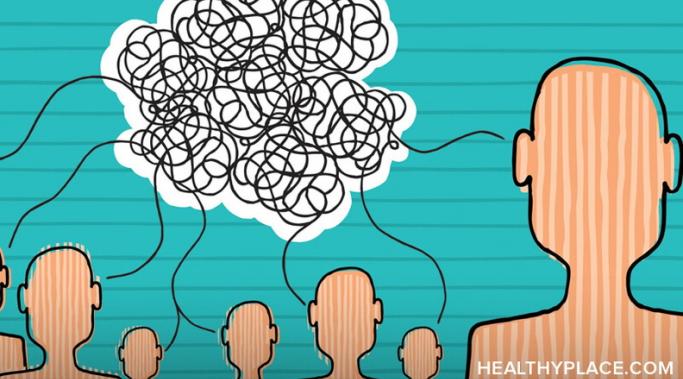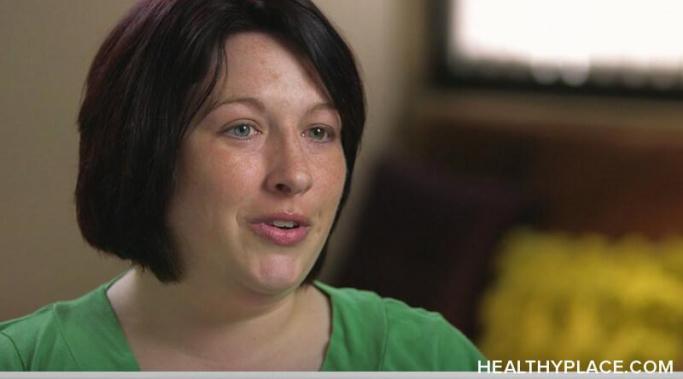Blogs
Every morning, I think about communicating with my alters. I embark on a journey within myself, stepping onto the internal bus where my alters await. With a roll call and a gentle reminder that I'm the sole driver, we set out on the day's path. Over the years, my alters, and I have traveled a winding road of unproductive, hostile communication, marked by fear and instability at the outset. But with time, understanding, and perseverance, we've learned to navigate this intricate terrain, fostering a dialog that supports our overall wellbeing by communicating with alters.
I recently realized that eye movement desensitization reprocessing (EMDR) could be useful for members of the lesbian, gay, bisexual, transgender, queer, intersex, and asexual plus (LGBTQIA+) community. I had the opportunity to be trained in EMDR as a therapist. This is a therapy for helping individuals with posttraumatic stress disorder (PTSD) to heal from their trauma. In addition to being a provider of EMDR, I recently started going through EMDR myself. These experiences made me start to think about EMDR as a modality that may help members of the LGBTQIA+ community in healing from their traumas.
Waiting for depression to pass is interminable, but sometimes it's the only thing to do. In bipolar disorder, what goes down must come up -- at some point, anyway. The trouble is, no one knows when that's going to happen. There can be a lot of waiting for depression to pass in bipolar disorder. I hate it.
Softening the impact of borderline personality disorder (BPD) triggers means creating a buffer against the onslaught of emotional turbulence. For instance, rather than succumbing to impulses, I channel my energy into soothing activities like taking a warm bath, and I substitute self-harm with self-nurturance. Yet, life isn't always so neatly compartmentalized. There are moments when triggers ambush me mid-sentence, and the simple rituals of daily life offer little sanctuary. In these instances, my anchor is in the art of coping ahead to soften the impact of BPD triggers.
As someone with posttraumatic stress disorder (PTSD), I've learned dealing with uncertainty is akin to sitting in the middle of a field during a thunderstorm, praying lightning won't strike you. Uncertainty and PTSD are not my friends. They have not been kind or reassuring. They have not taken my hand and led me toward the sunlight. They have only ever presented as a long, dark tunnel with no end.
I consider conditional love to be part of verbal abuse. Not all verbally abusive behaviors are apparent. Instead of demeaning insults or threats, sometimes it involves less obvious actions, like withholding affection. This type of conduct can still be harmful to anyone who is the target of conditional love and verbal abuse from a person they care about.
My physical therapist, Marge, really surprised me by starting a conversation about mental health stigma on my last visit with her. I need to be in physical therapy because I’m recovering from double knee replacement surgery. Our conversations have revealed that she’s very anti-mental health stigma. Some people aren’t, so I just don’t discuss it with them. Physical therapy suddenly took on a whole new dimension.
I have experienced anxiety and loss. It's been about five years since the loss of my father, and this year, I've been reminded that grief takes its own route and doesn't operate on a schedule -- particularly with regard to anxiety and loss.
Time flies when you are neurodivergent. I know this because I am not neurotypical, given that I have been diagnosed with double depression and generalized anxiety disorder. I am aware that many people do not consider depression and anxiety as neurodiverse conditions. But I do, and my lived experience matters. Plus, my psychiatrist himself told me that having depression and anxiety for years has changed the structure of my brain such that it is different from that of a person without depression and anxiety. So, let's talk about time and neurodivergence.
Recovering from a mental illness is already hard, but being prescribed the wrong mental health medication makes the experience even harder. In the past, I have been prescribed the wrong mental health medications, and I’ve heard many stories of others who have had to deal with the same situation. Being medicated incorrectly can be harmful, so speaking up when there’s something wrong is critical.










My girlfriend is a mental illness learning how to stop war is a mental illness